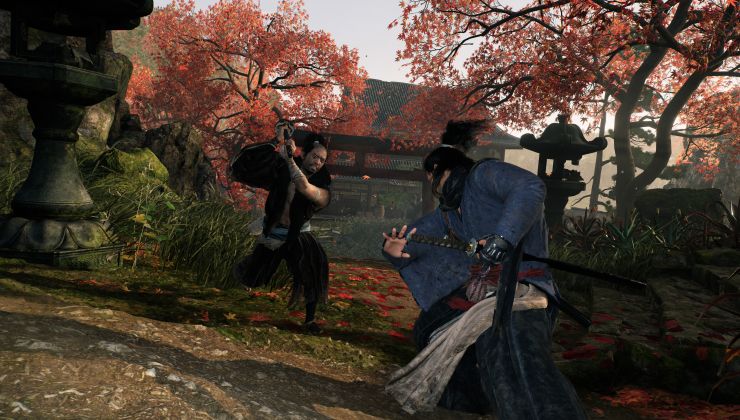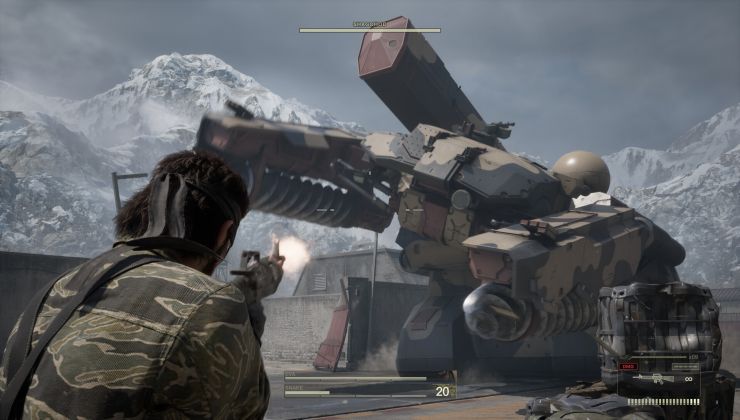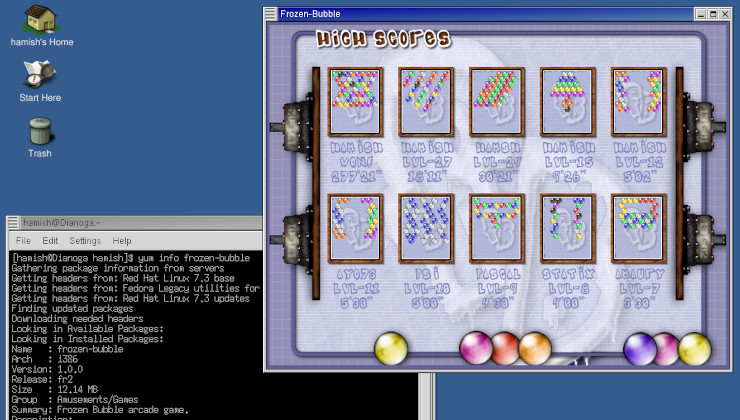As you might have heard by now, Canonical has made the decision to drop 32bit support from Ubuntu 19.10 onwards.
Writing on the mailing list, as well as this post on Ubuntu's Community Hub, Canonical gave a reminder that the decision isn't coming without warning. It was proposed last year and it was followed up with another post detailing a final decision to be made in the middle of 2019. So here we are, the decision seems to have been made.
The problem isn't hardware, as likely around 99% of people nowadays have a 64bit capable computer. Going by our own statistics, from what 2,254 users told us only 4 are using a 32bit Linux distribution. The issue then, is mainly software and libraries needed to actually run 32bit applications. This is where it sounds like there's going to be plenty of teething issues, with a number of people not too happy about the decision.
Steam, for example, is one such application along with plenty of 32bit games that will likely never get updated, although Canonical did say they're "in discussions" with Valve about it. There's also GOG, Humble Store and itch.io which all provide a number of direct-download 32bit games, which do not supply the required 32bit libraries to run. It doesn't sound like they have been given any thought (at least they haven't been mentioned).
Another of the major problems being Wine, with a discussion now happening on their mailing list. The discussion doesn't seem to be too positive, with developer Henri Verbeet even saying "I think not building packages for Ubuntu 19.10 would be the only practical option.", although Andrew Eikum's idea of using the Steam Runtime could be an interesting way around it.
What are your thoughts?
I'm starting to suspect they don't really know how these things work...
Developers should know. Especially when they make such drastic decision as to drop whole x86_32 multiarch. But yeah, it seems they had little clue about what they were doing.
What a bad idea. It will bring people away from Linux (look windows is much more convenient and just works!) and makes it harder for new users to come over to Linux.
What a bad day. These are the things, why Linux does not get successfull on the desktop.
An removing something that works, without a replacement is so dumb. They know that lots of users need that. And not only for gaming. :(
Mageia is independent from any other distribution or company and is made by a well established community of volunteers (not only one or two enthusiasts). It's made by people who want a reliable Linux desktop so they use those solutions from all Linux "worlds" which work best for the desktop user. It's upgrade cycles are slower than other distributions (around 1.5 years), but stability and usability are great. Ideal distribution for non tech-savvy users.
Last edited by Micromegas on 21 Jun 2019 at 8:28 pm UTC
So, the list of candidate replacements are: Debian, Mint Debian Edition, Manjaro, Endeavour, Mageia and i forgot another one: Suse ? Many will jump ship and the Linux gaming landscape will be fragmented as ever ! :P
Fedora and Arch can also be interesting options.
Last edited by Shmerl on 21 Jun 2019 at 8:33 pm UTC
Linux
0.84%
Ubuntu 18.04.2 LTS 64 bit
0.20%
Linux 64 bit
0.08%
"Manjaro Linux" 64 bit
0.07%
Ubuntu 19.04 64 bit
0.07%
Linux Mint 19.1 Tessa 64 bit
0.06%
Doesn't really help with what to recommend to new users as these are all based on Ubuntu apart from Manjaro. About 50% of the total userbase must be using other distros.
So, the list of candidate replacements are: Debian, Mint Debian Edition, Manjaro, Endeavour, Mageia and i forgot another one: Suse ? Many will jump ship and the Linux gaming landscape will be fragmented as ever ! :P
openSUSE will have to go through some changes soon -- though exactly what at the technical level I don't think anyone really knows right now. They're establishing a foundation independent from SUSE. Even the name & logo etc. will have to change. Check out: https://lwn.net/Articles/790298/
Alan pope of Canonical tried a few GoG games on 64 bits only 19.10 and guess what ? It is not going well.
https://www.phoronix.com/scan.php?page=news_item&px=Trying-GOG-Games-64-bit-Ubuntu
But at least they are thinking about it.
Would be better if they thought about this sooner, but it's something, I suppose.
So, the list of candidate replacements are: Debian, Mint Debian Edition, Manjaro, Endeavour, Mageia and i forgot another one: Suse ? Many will jump ship and the Linux gaming landscape will be fragmented as ever ! :P
What about MX Linux? It's based on Debian and pretty straightforward to set up.
So, the list of candidate replacements are: Debian, Mint Debian Edition, Manjaro, Endeavour, Mageia and i forgot another one: Suse ? Many will jump ship and the Linux gaming landscape will be fragmented as ever ! :P
Fragmented? How so? With the Steam runtime the distribution you use doesn't matter as long as your distribution provides a suitable C runtime and graphics driver. And for GOG games you can just install missing libraries via your distribution repository if something is missing. I'm playing so called "Ubuntu compatible" games on Mageia since years now without any problems.
I'm surprised about what kind of assumption he was making. That it would "just work"? How?
I'm sure the only assumption Mr Pope was making was that yelling on the internet is not a good way to express an opinion. By politely and tactfully demonstrating the problems to the developers he has made his point constructively.
I'm sure the only assumption Mr Pope was making was that yelling on the internet is not a good way to express an opinion. By politely and tactfully demonstrating the problems to the developers he has made his point constructively.
I guess demonstration is useful. But it shows the level of cluelessness those who made such decision have. It doesn't exactly instill confidence.
So, the list of candidate replacements are: Debian, Mint Debian Edition, Manjaro, Endeavour, Mageia and i forgot another one: Suse ? Many will jump ship and the Linux gaming landscape will be fragmented as ever ! :P
Fragmented? How so? With the Steam runtime the distribution you use doesn't matter as long as your distribution provides a suitable C runtime and graphics driver. And for GOG games you can just install missing libraries via your distribution repository if something is missing. I'm playing so called "Ubuntu compatible" games on Mageia since years now without any problems.
I think Dedale was referring to the possibility of the Linux community being fragmented further by creating a situation where you would have distros that don't have 32-bit libraries (Ubuntu, OpenMandriva) and distros that have them (Debian, Mageia, etc.). In such a situation, the ability of installing a suitable drivers and libraries, like you mentioned, would not apply to all distributions.
apt-get autoremove
is not the right way to use it though. Many forget to add purge:
apt-get autoremove --purge
By the way, they dropped the -get like a release or two ago. So now it's just
apt autoremove --purgeThough I prefer to not purge usually because occasionally I think 'crap, I wanted to keep that config file!' But then that's what etckeeper is for!
Oh dear... this will get interesting
Alan pope of Canonical tried a few GoG games on 64 bits only 19.10 and guess what ? It is not going well.
https://www.phoronix.com/scan.php?page=news_item&px=Trying-GOG-Games-64-bit-Ubuntu
Heh, what did they expect? A lot of older games on GOG are 32-bit. Both native and Wine.
I think given the post, that he was trying to assess the comments that "Wine is fine"
I did this because there’s been a couple of assertions made:
That games ship their own required libs and will likely work
That WINE64 is sufficient for playing Windows games
In essence because people (not sure what clueless dolts were saying this) were making said claims he went out and tested those claims.
In a shock to literally no one, it was a trainwreck
So I think there is no need to panic as long as they not include 32bit Software to be not supported any longer.
And I don't think canonical is that dumb.
But that's exactly what they said they are going to do. AKA shooting themselves in both feet.
My opinion is that it is great, but not yet ready.
1) Installer is superb. The only 2 features I would add are:
1.1) allowing to set shortcuts to change keyboard layout (Fedora does this, and I love it)
1.2) more information about disks and partitions on the screen where you select where to install grub
currently you have to go back 1 step to check which sd* you decided to use.
2) Enable "backports non-free" repo by default and offer user to install fresh kernel and drivers in Welcome screen.
Currently you have to edit sources.list manually and install fresh packages from backports via command line, not even Synaptic offers them.
3) It is great that flatpak is integrated, you can install software like Skype via GUI, but latest stable Firefox in only available as a Snap. Maybe Mint can provide it from their repo?
4) I was not able to find HiDPI settings. Are they really missing in LMDE?
Last edited by omicron-b on 22 Jun 2019 at 8:29 am UTC
Thank you for your condolences. You make a good point about a limitation of snaps. For me, another one is that almost every snap I ever tried was unable to access my data partition---where I keep all my music, videos, pix, and games.
Only your data partition? Or anything beyond the snap sandbox? Because that happens to non-"classic" installs.
https://blog.ubuntu.com/2017/01/09/how-to-snap-introducing-classic-confinement
As I recall, it was just my data partition. It simply wasn't "seen" by, for example, VLC in snap. I'm pretty sure the rest of the system showed up, though I'm less certain about this since I wasn't as concerned about places where my music library wasn't ;).
Is Steam officially supporting Debian, as well, or are they only the LTS version of Ubuntu?I didn't see a response to your question, although I may have missed it. According to some outdated documentation, "[Currently, Steam for Linux is only supported on the most recent version of Ubuntu LTS with the Unity, Gnome, or KDE desktops.](https://support.steampowered.com/kb_article.php?ref=1504-QHXN-8366)" Clearly the Steam client on SteamOS is also supported, but as far as I am aware, official support isn't currently extended to Steam client use on Debian itself, despite SteamOS being a Debian derivative. Steam's own [Hardware & Software Survey](https://store.steampowered.com/hwsurvey/Steam-Hardware-Software-Survey-Welcome-to-Steam?platform=linux) shows that people use the client on unsupported distros, and several other unsupported distros in part constitute the "Linux 64 bit" and "Other" listings for Linux version.
Despite the Steam client not being supported beyond SteamOS and Ubuntu LTS, you can find games on the Steam store that mention other distros in their system requirements (e.g. [Neverwinter Nights: Enhanced Edition](https://store.steampowered.com/app/704450/Neverwinter_Nights_Enhanced_Edition/) lists "Ubuntu 12.04 or later, Fedora 21, Debian 8"; [Skullgirls](https://store.steampowered.com/app/245170/Skullgirls/) lists "Ubuntu 15.04 / Fedora 22 / SteamOS"; etc).
The store categorizes the platform as "SteamOS + Linux", but in terms of official support, I believe that phrasing is intended to mean 'SteamOS + Ubuntu LTS', not 'SteamOS + all Ubuntu releases including interim releases' or 'SteamOS + any other Linux distribution in existence'. I would not be surprised if Linux users not using SteamOS or Ubuntu LTS are subject to the potential caveat that [Steam Support](https://help.steampowered.com/) can refuse help requests if they so choose.
---
I have yet to hear GOG Sp. z o.o.'s reaction to [the news](https://discourse.ubuntu.com/t/results-of-testing-games-on-64-bit-only-eoan-19-10/11353) (somehow I picture [this](https://youtu.be/Gbg7BdJzZ_4) as their reaction, but I expect they will address it as best they can); I'm interested if GOG is taking a wait-and-see approach or has a more proactive response, and if this might further dampen their Linux endeavors. GOG currently only officially supports Ubuntu and Ubuntu derivatives.
(https://support.gog.com/hc/en-us/articles/212456929-General-questions)]Which Linux distributions do you support?
We test and support our games on Ubuntu 16.04 LTS and Ubuntu 18.04 LTS. Our support also extends to any future non-LTS releases of Ubuntu that has not reached it end of life yet, official Ubuntu flavors (like Kubuntu, Xubuntu, etc.), and derivatives (e.g. Linux Mint, elementaryOS etc.).
As long as your operating system is part of the Ubuntu family, you have nothing to worry about. Naturally, our technical support and refund policy apply to all these versions, as long as you meet the minimal requirements for the game you bought.
Are you planning to add official support for more Linux distributions?
There are no plans to officially support other Linux distributions at this time, sorry.
Last edited by vector on 22 Jun 2019 at 5:08 pm UTC











 How to set, change and reset your SteamOS / Steam Deck desktop sudo password
How to set, change and reset your SteamOS / Steam Deck desktop sudo password How to set up Decky Loader on Steam Deck / SteamOS for easy plugins
How to set up Decky Loader on Steam Deck / SteamOS for easy plugins
See more from me